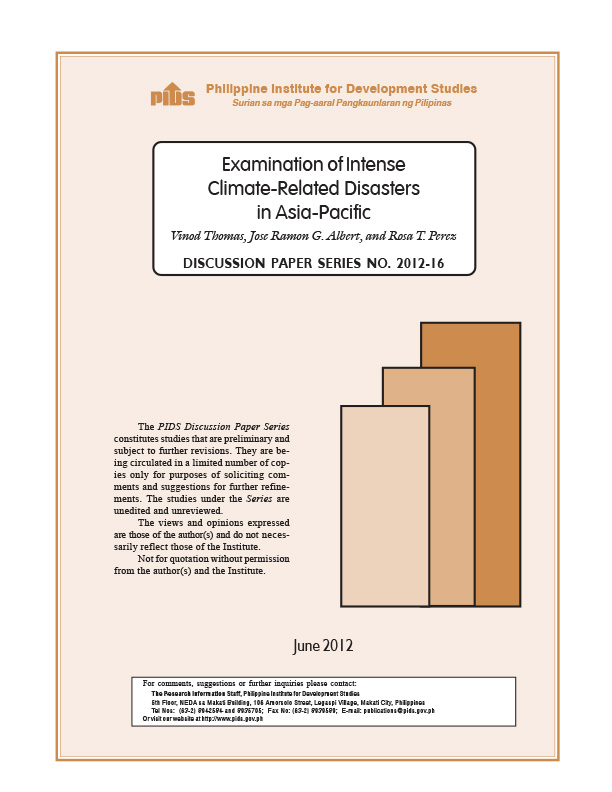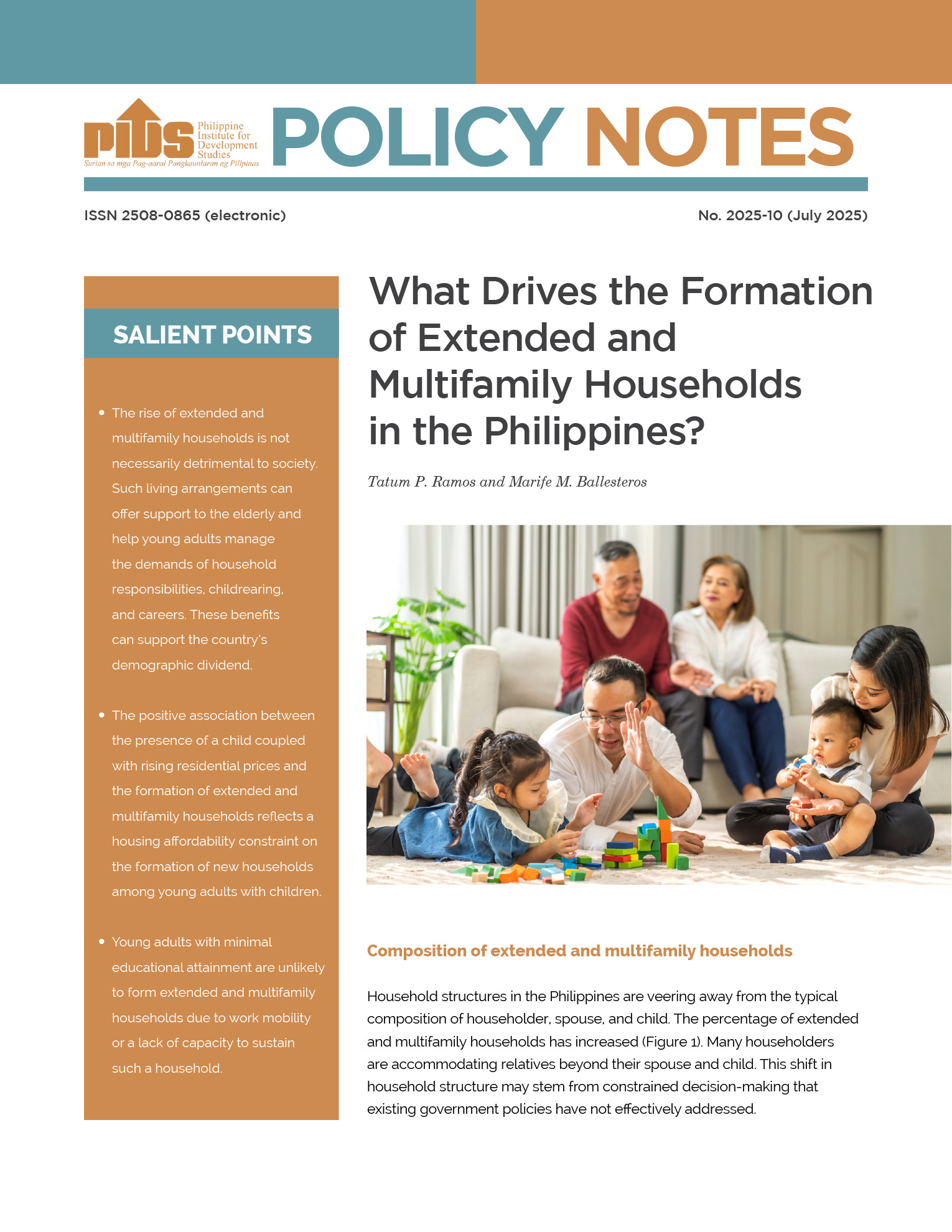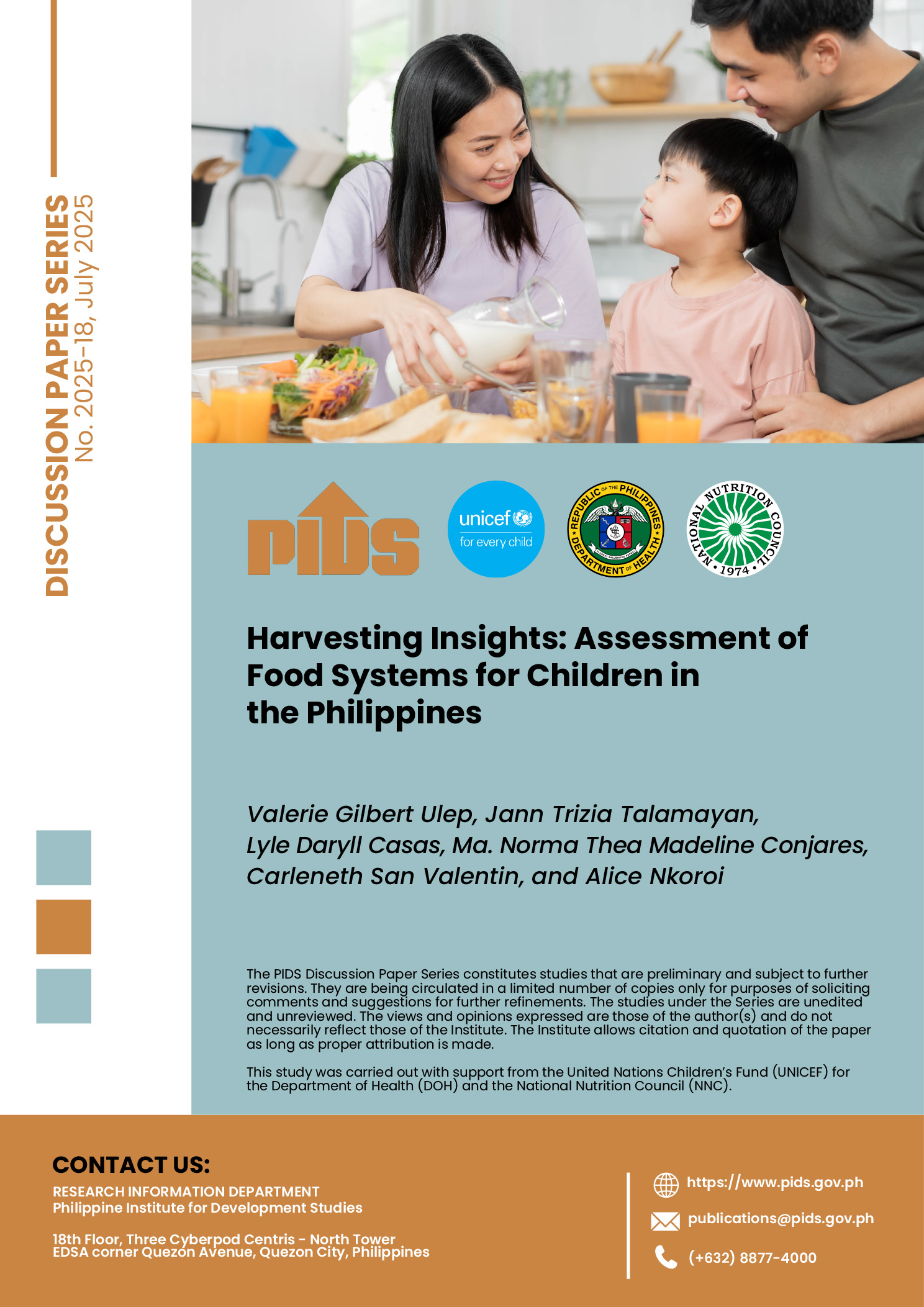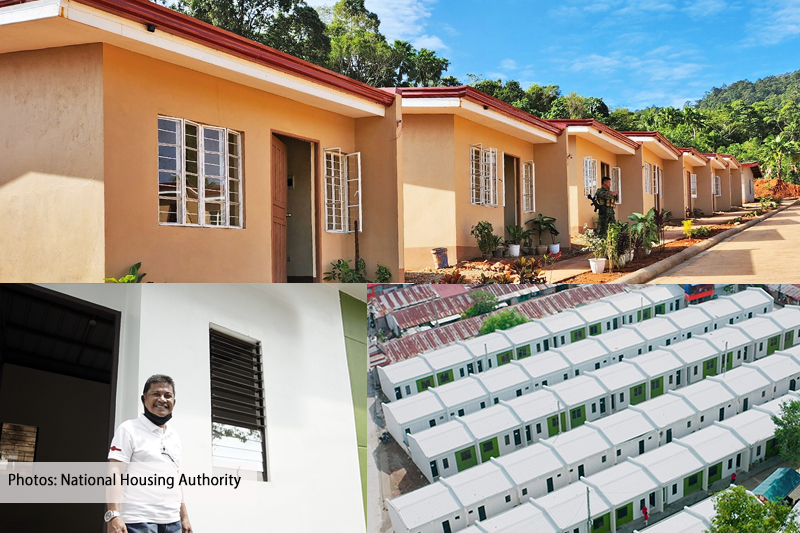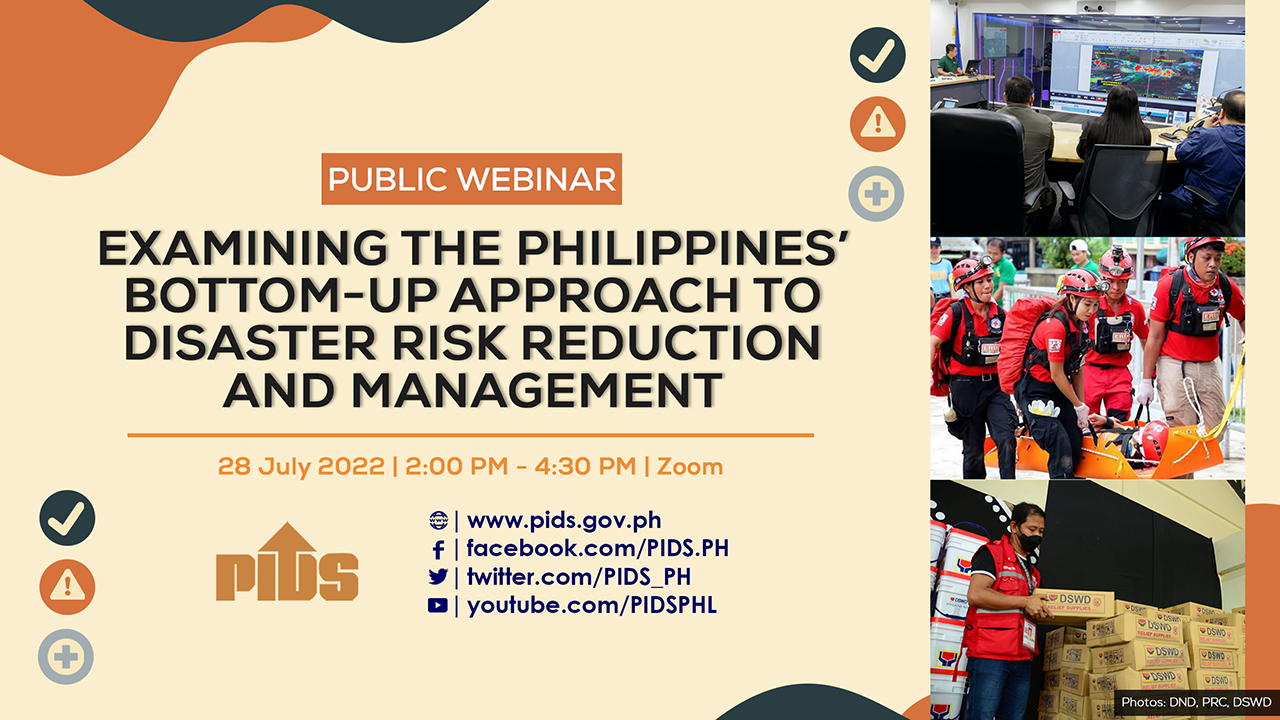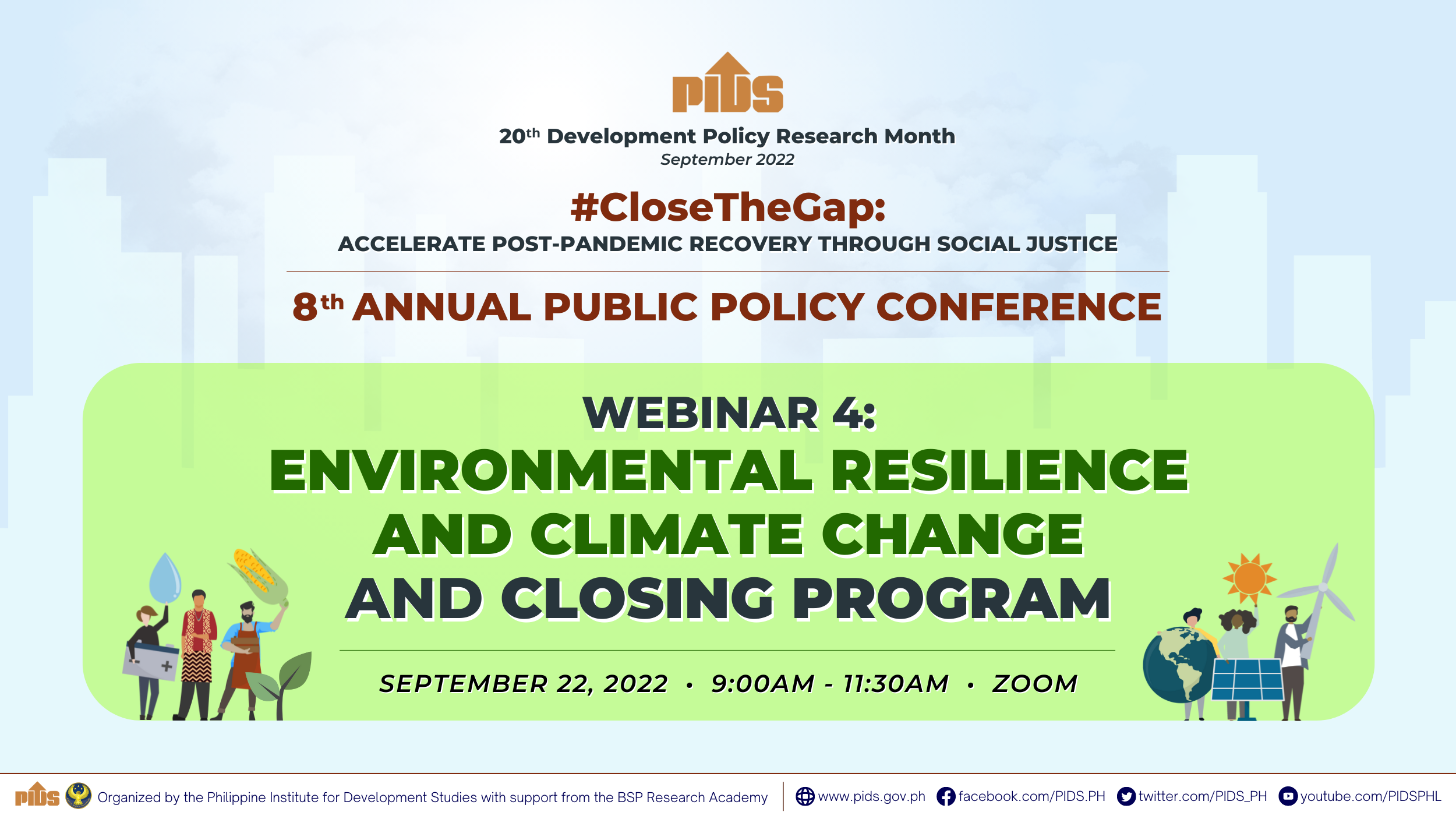The frequency of intense floods and storms is increasing globally, particularly in Asia-Pacific, amid the specter of climate change. Associated with these natural disasters are more variable and extreme rainfall and temperatures as recorded in publicly available databases for the world, Asia-Pacific, and the Philippines, the case examined in detail. The risks of these events are resulting from a confluence of three factors: rising exposure of populations, increasing vulnerabilities, and the changing nature of the hazards themselves. All three factors are contributing to increasingly turn hazards of nature into intense natural disasters. The economies along coastal areas in South, Southeast (for example the Philippines), and East Asia are at the greatest risk, with the heaviest toll on low- and lower-middle-income economies. These catastrophes threaten the otherwise dramatic progress on poverty reduction of the past three decades in Asia-Pacific. This outlook points to the urgent need for economies not only to adapt their exposure and capacity in relation to natural disasters, but also to mitigate climate change that seems to underlie the new trends.
Citations
This publication has been cited 1 time
- Nolasco-Javier, Dymphna, Lalit Kumar, and Arlene Tengonciang. 2015. Rapid appraisal of rainfall threshold and selected landslides in Baguio, Philippines. Natural Hazards: Journal of the International Society for the Prevention and Mitigation of Natural Hazards, Springer, 78, no. 3, 1587-1607 . nternational Society for the Prevention and Mitigation of Natural Hazards.

